The Supreme Court declared by a margin of 5 to 4 Friday that states must license same-sex marriages and recognize similar unions from other states, effectively ending a long legal battle over the marriage rights for gays and lesbians.
“No union is more profound than marriage, for it embodies the highest ideals of love, fidelity, devotion, sacrifice, and family. In forming a marital union, two people become something greater than they once were,” wrote Justice Anthony Kennedy, who delivered the opinion for the court. “[The challengers] ask for equal dignity in the eyes of the law. The Constitution grants them that right.”
The high court’s historic ruling in Obergefell v. Hodges will expand the recognition of gay marriages beyond the 37 states and Washington, D.C., where it is currently legal, to all 50, affording same-sex couples the same rights and benefits long conferred on heterosexual unions.
Already, couples in the remaining states that had not yet recognized gay marriage have been planning weddings, and research from the Williams Institute indicates the ruling may even inspire couples who already could legally marry in other states to tie the knot as well.
Speaking from the White House, President Obama praised the decision, arguing that it was a sign of progress.
See Scenes of Celebration After Supreme Court Gay Marriage Ruling
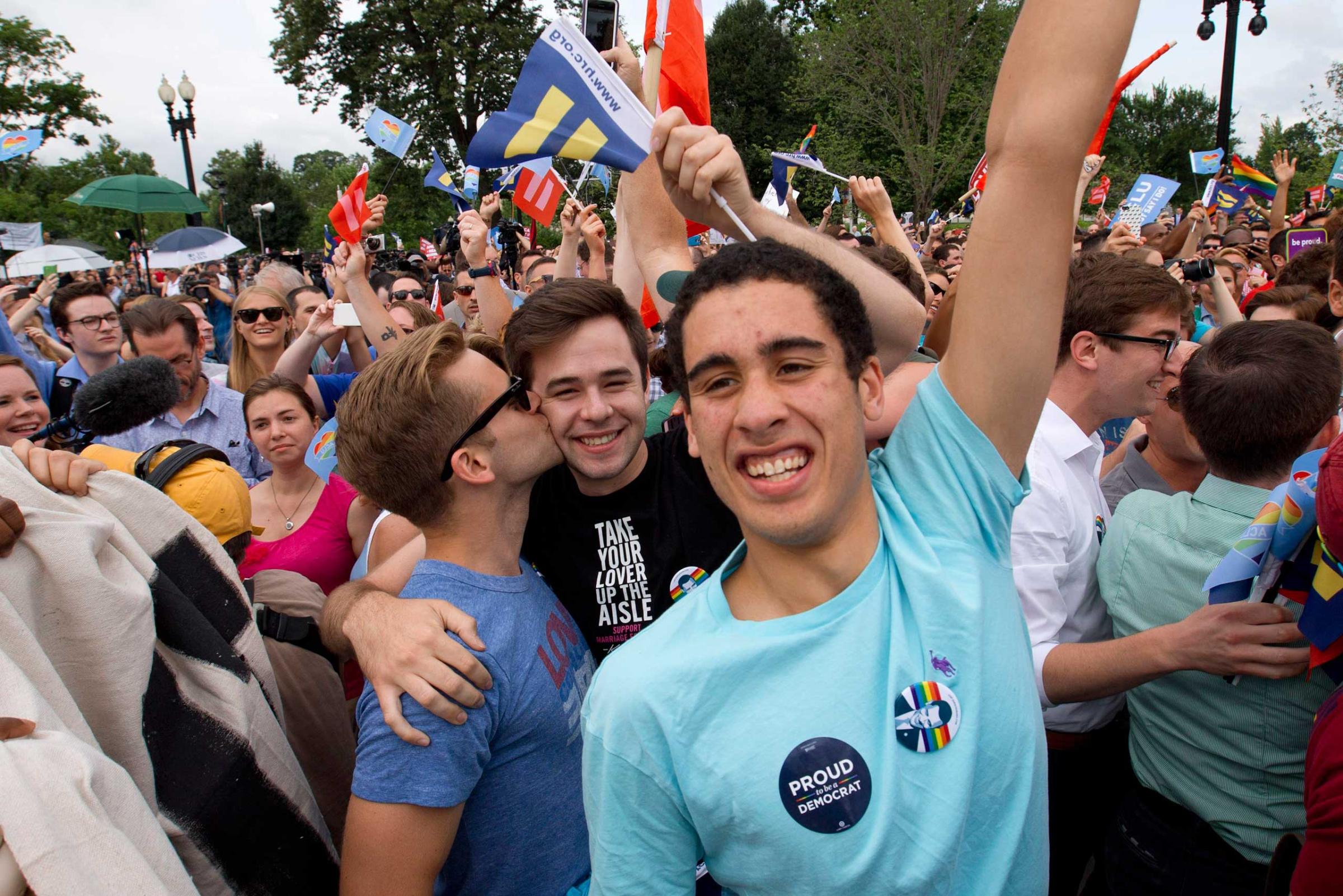
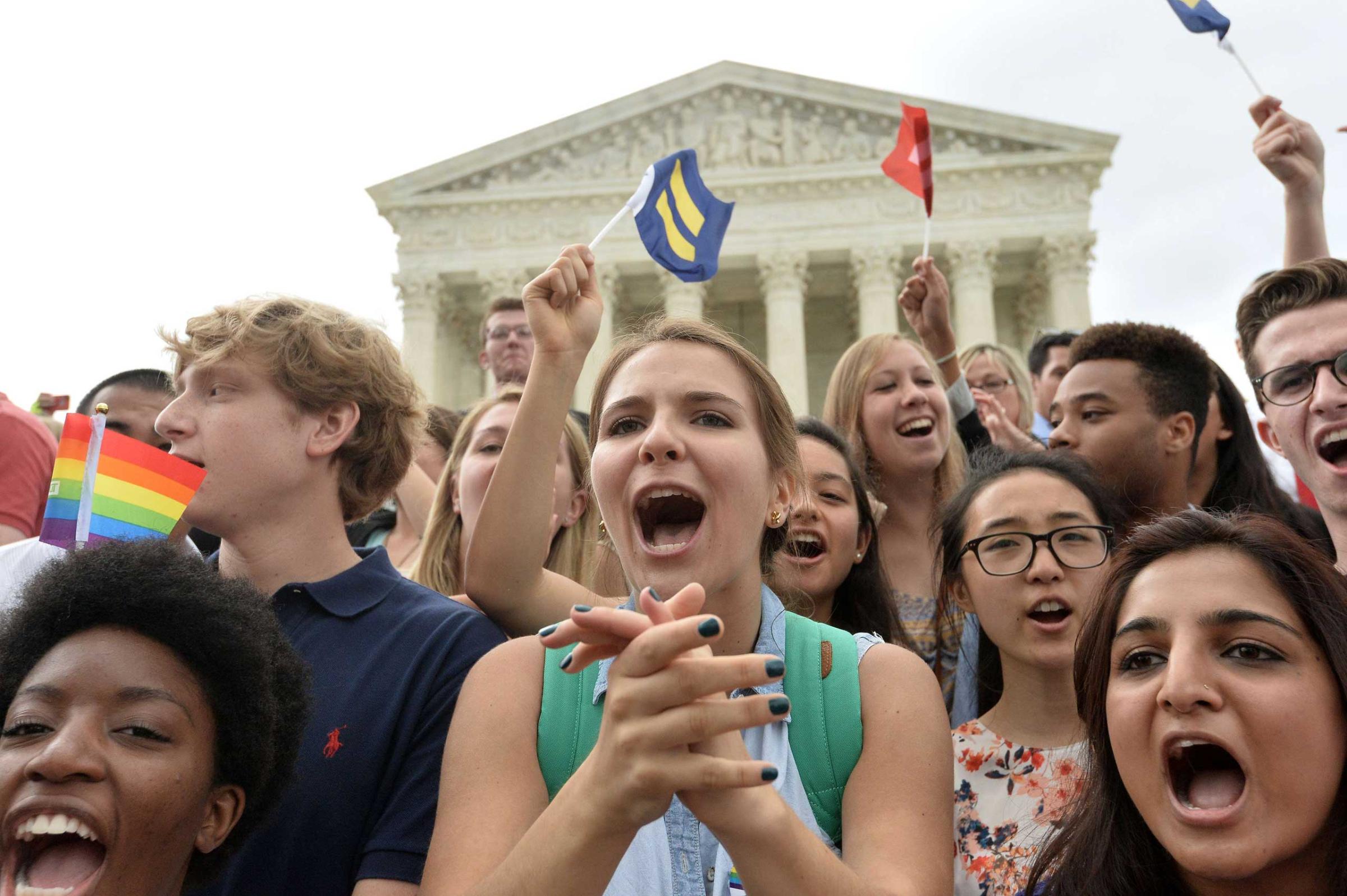
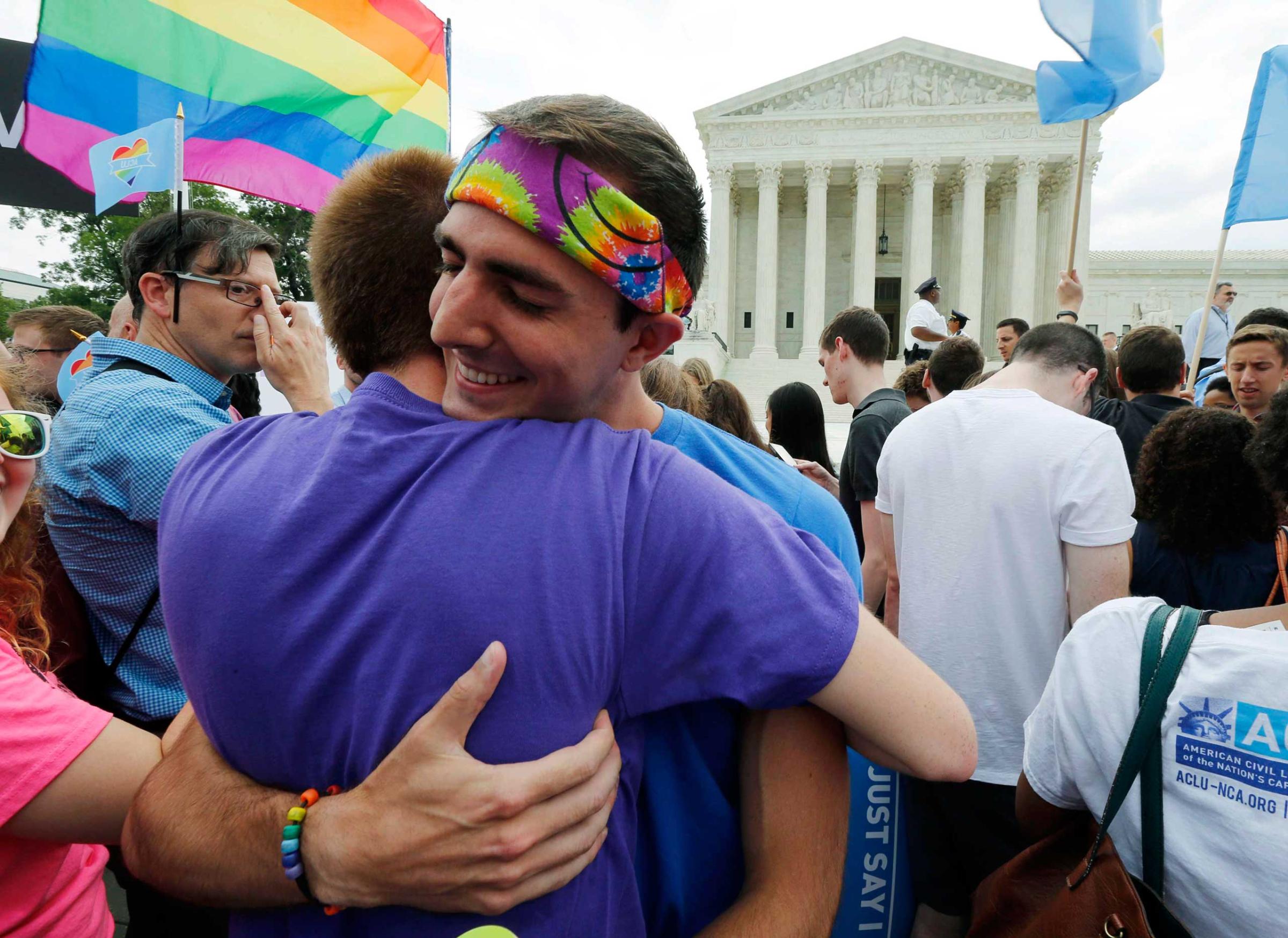
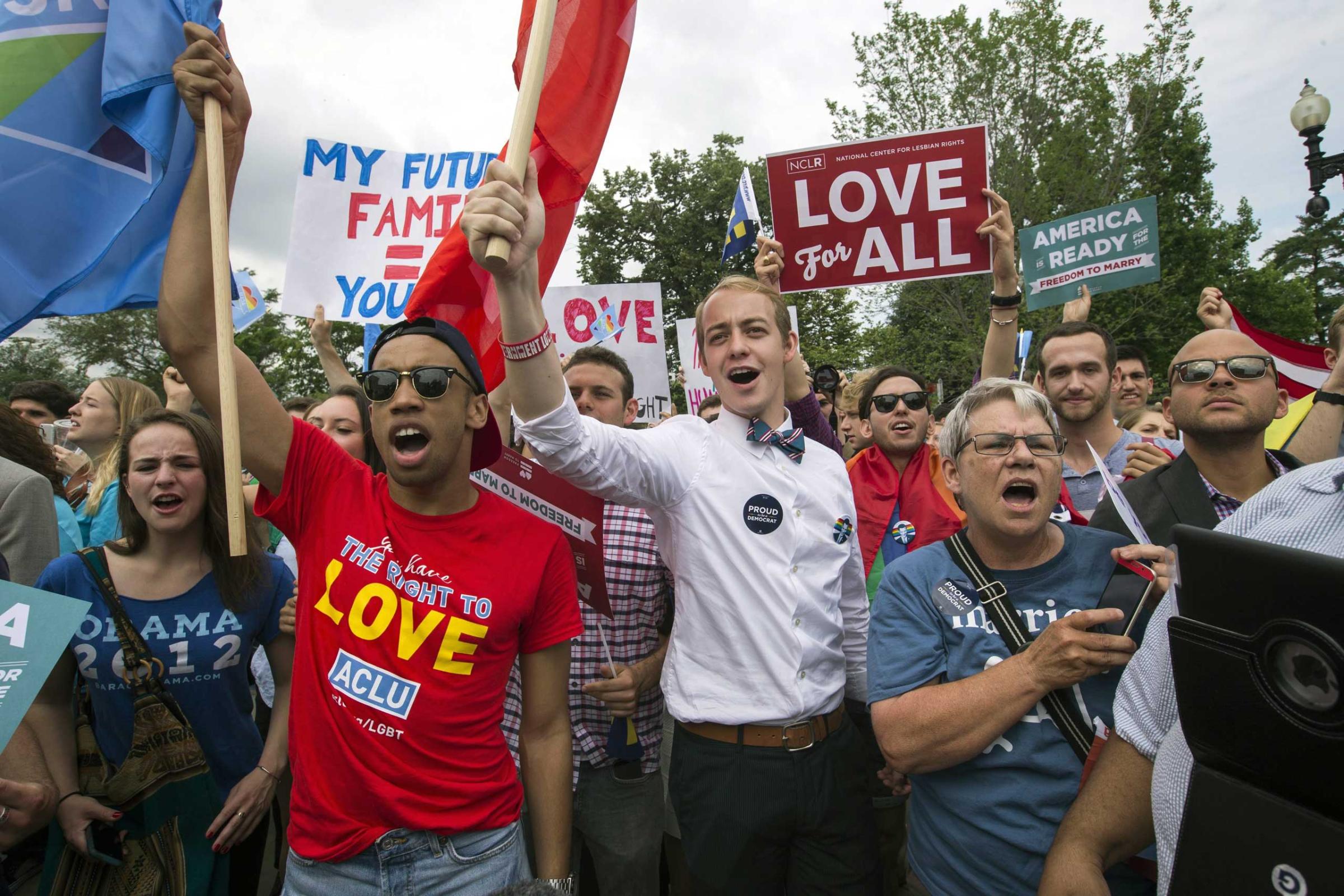
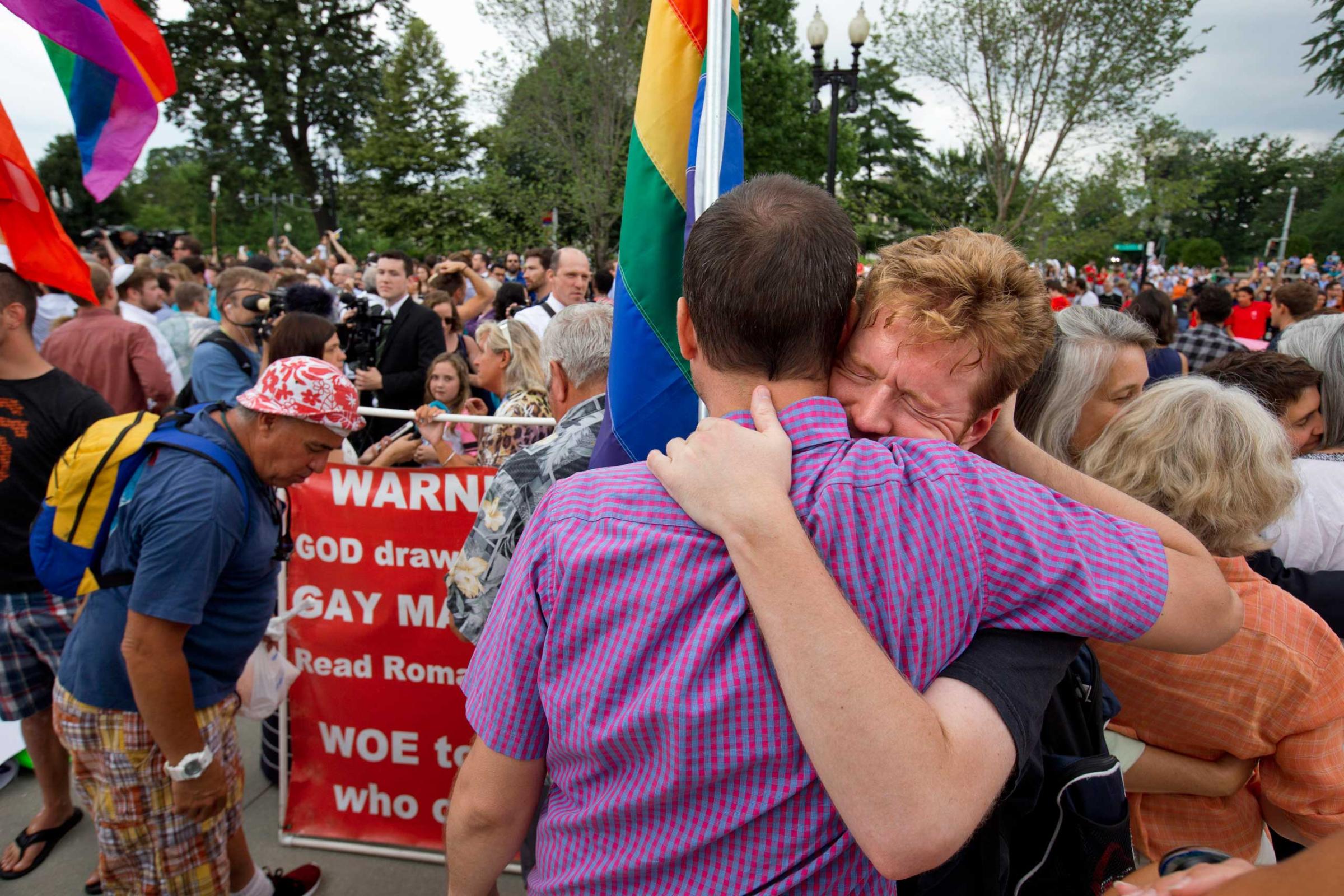
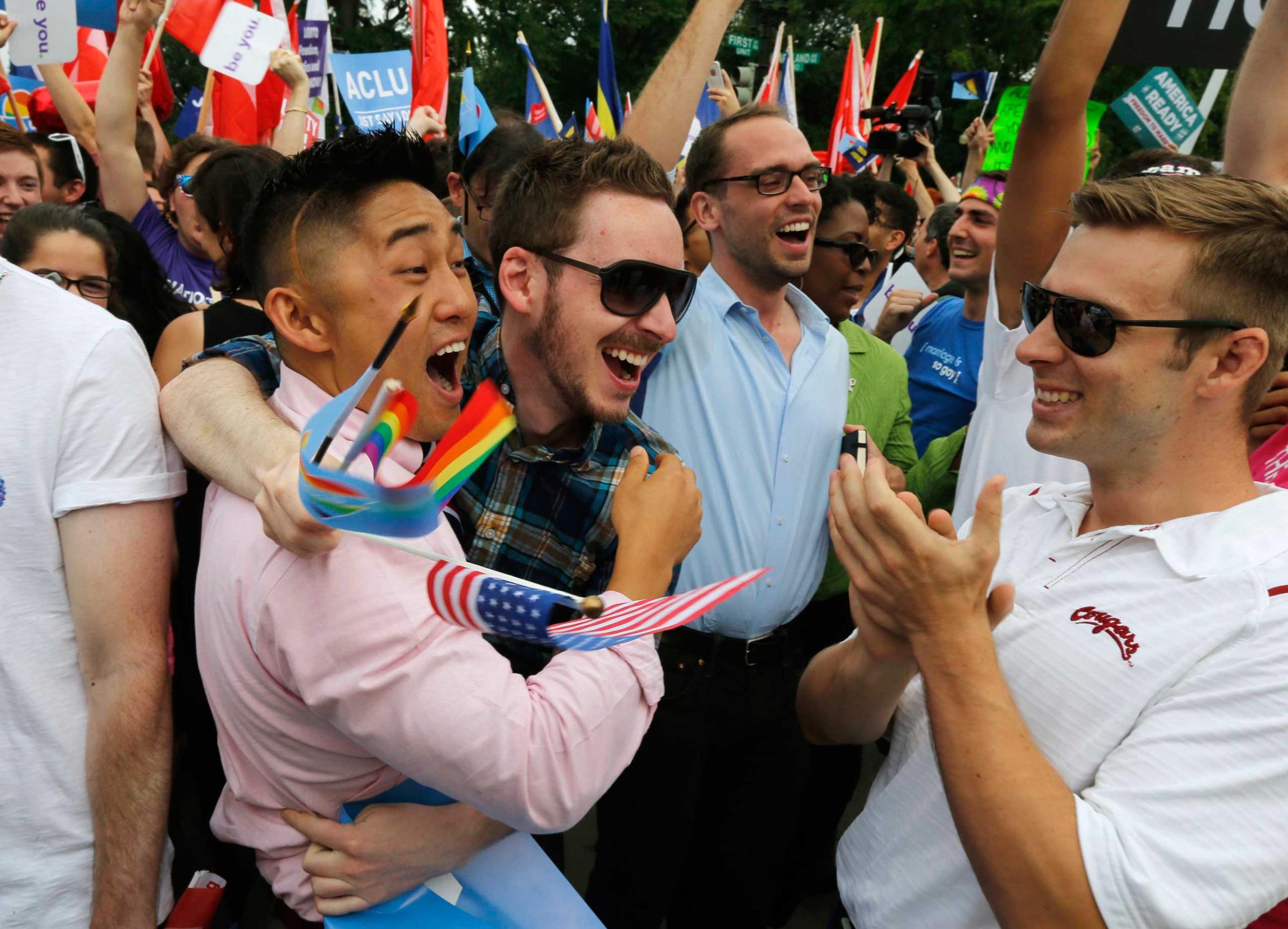
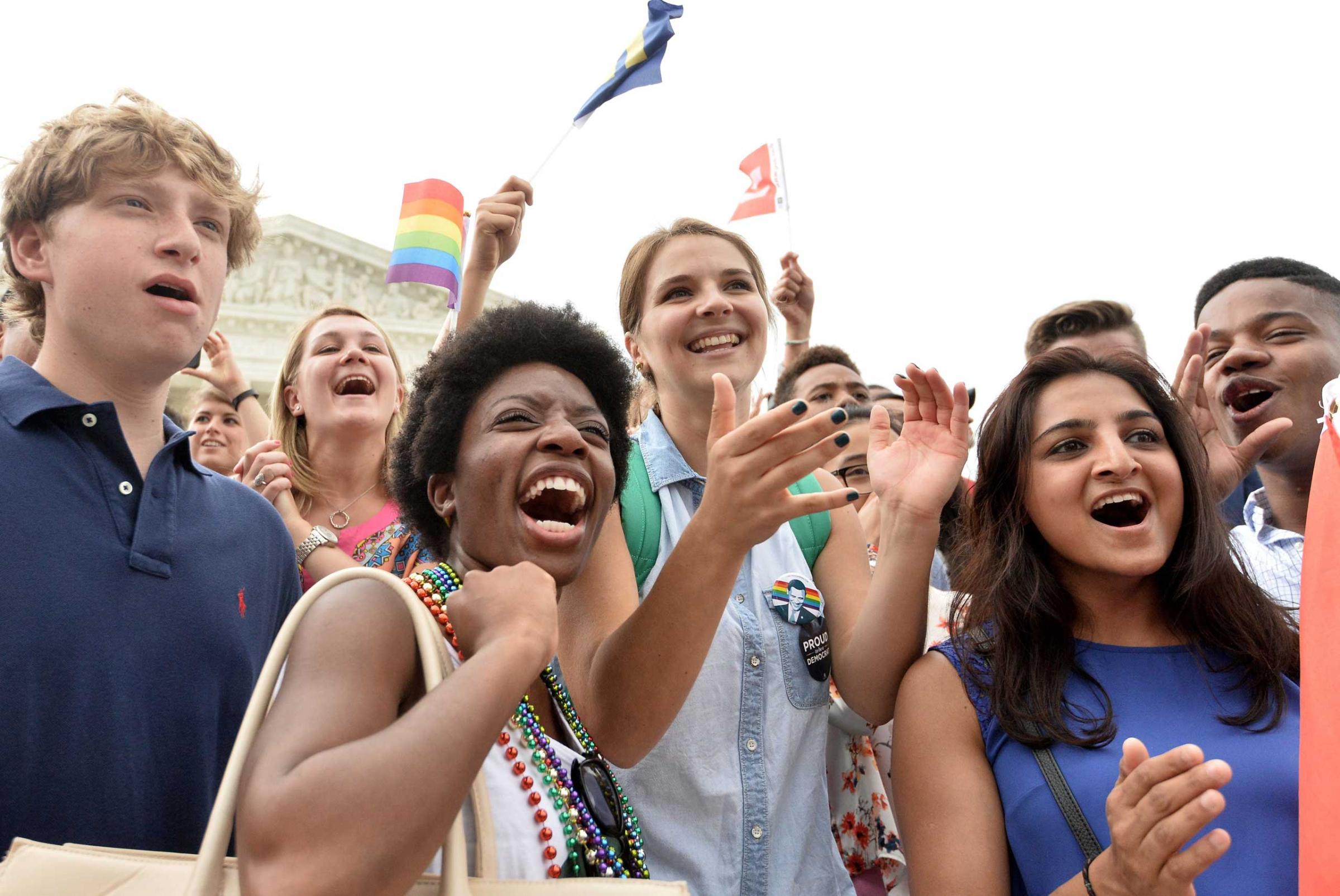
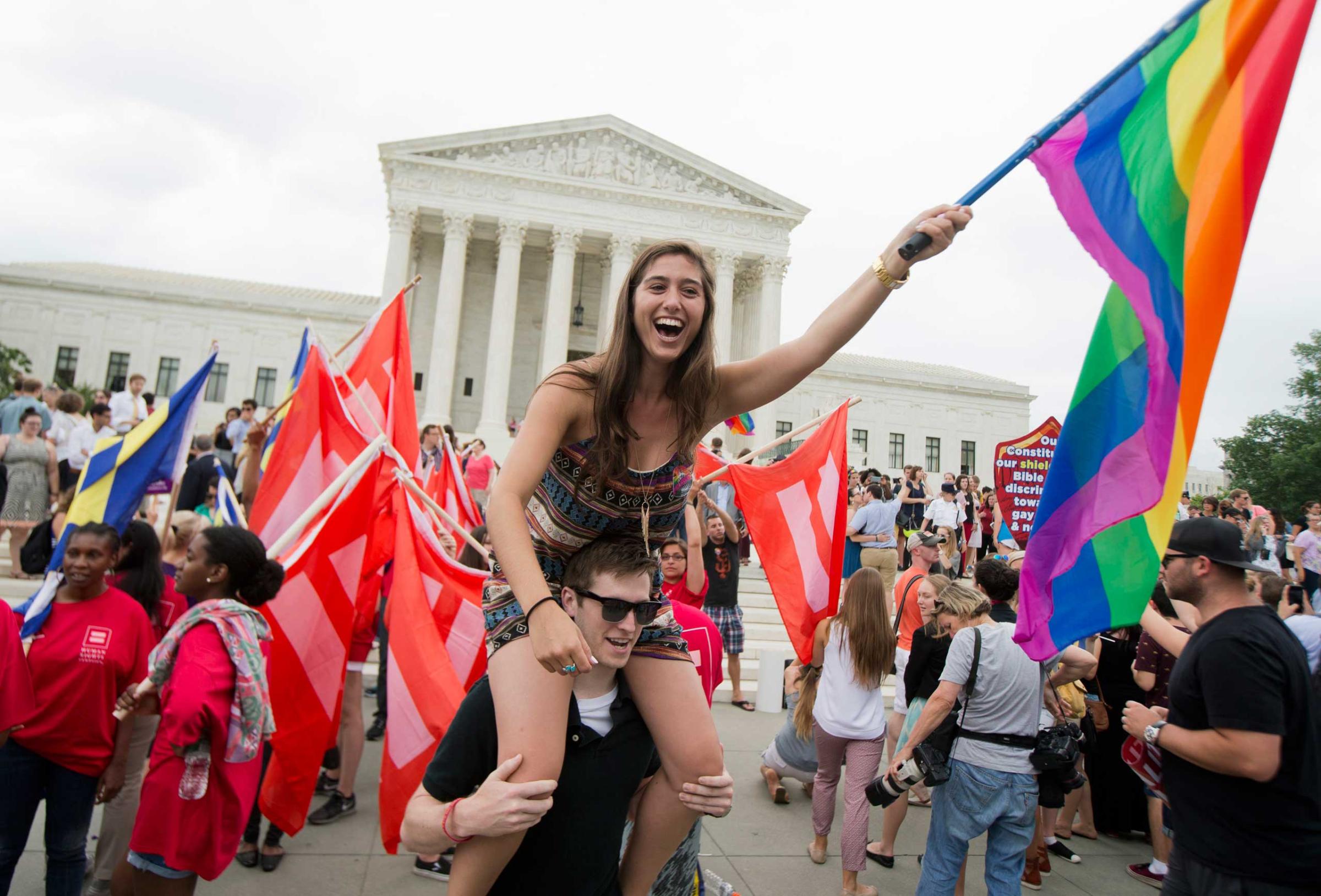
Progress comes “sometimes two steps forward, one step back propelled by the persistent effort of dedicated citizens,” Obama said. “But then sometimes there are days like this when that slow steady effort is rewarded with justice that arrives like a thunderbolt.”
Among the Republicans running to replace Obama, the ruling was roundly rejected, with former Florida Gov. Jeb Bush and Sen. Marco Rubio arguing that it was simply a poor decision the country must learn to live with, while former Arkansas Gov. Mike Huckabee as an act of “judicial tyranny” that must be resisted.
The ruling finishes a project begun by Justice Anthony Kennedy in 1996 with a landmark decision that overturned an anti-gay rights ballot measure in Colorado. That opinion laid the groundwork for the Supreme Court to throw out sodomy laws in 2003 and invalidate a ban on federal recognition of gay marriage in 2013, also authored by Kennedy, which undergirded Friday’s 5-4 decision. Kennedy argued that the Fourteenth Amendment to the Constitution, which promises equal protection for all citizens under the law, forced states to recognize same-sex nuptials.
Chief Justice John Roberts wrote the principle dissent, joined by Justice Antonin Scalia and Justice Clarence Thomas. They argued that the court was overstepping its bounds by taking an action better left to the democratic process. “This Court is not a legislature. Whether same-sex marriage is a good idea should be of no concern to us,” Roberts wrote. “In short, our Constitution does not enact any one theory of marriage. The people of a State are free to expand marriage to include same-sex couples, or to retain the historic definition.”
Justices Scalia, Thomas and Samuel Alito wrote additional dissents. Scalia said he wrote “to call attention to this Court’s threat to American democracy.” “Today’s decree says that my Rular, and the Ruler of 320 million Americans coast-to-coast, is a majority of the nice lawyers on the Supreme Court,” Scalia warned. “The five Justices who compose today’s majority are entirely comfortable concluding that every state violated the Constitution for all of the 135 years between the Fourteenth Amendment’s ratification and Massachusetts’ permitting of same-sex marriage in 2003.”
There will be other fights in courthouses and capitols across the country. Gays and lesbians still face discrimination in housing and employment, while the country has only recently begun to tackle the issues faced by transgender Americans. Debates over the tension between religious liberty and discrimination will continue.
In the court of public opinion, the fight over gay marriage has been over since 2011, when Gallup first recorded a majority in favor, and the win has only become more decisive. A survey released in May showed a record-high 60 percent of Americans now approve of same-sex marriage.
MORE: New Strategy Against Gay Marriage Divides GOP 2016 Field
Silent No More: Early Days in the Fight for Gay Rights

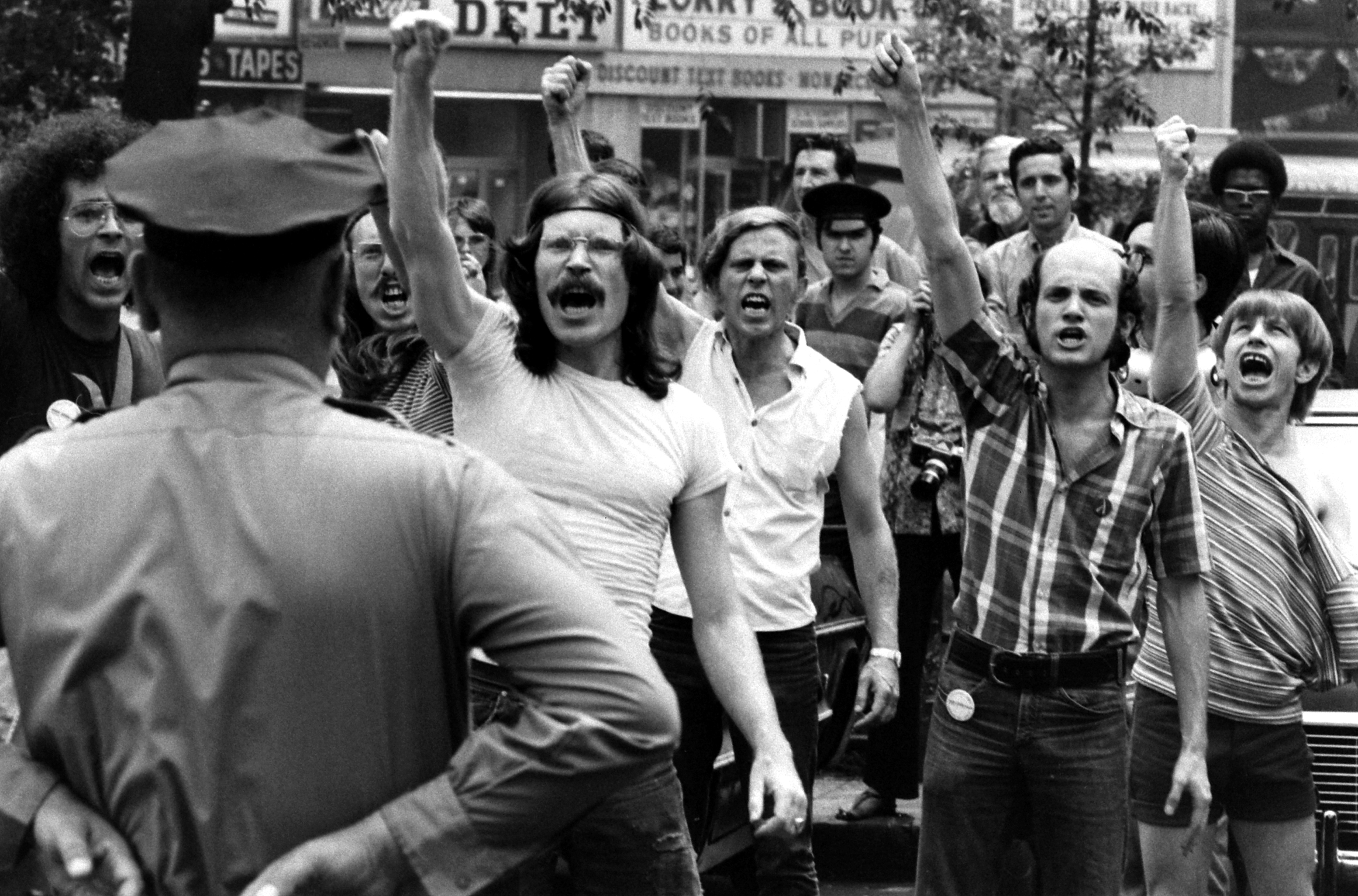
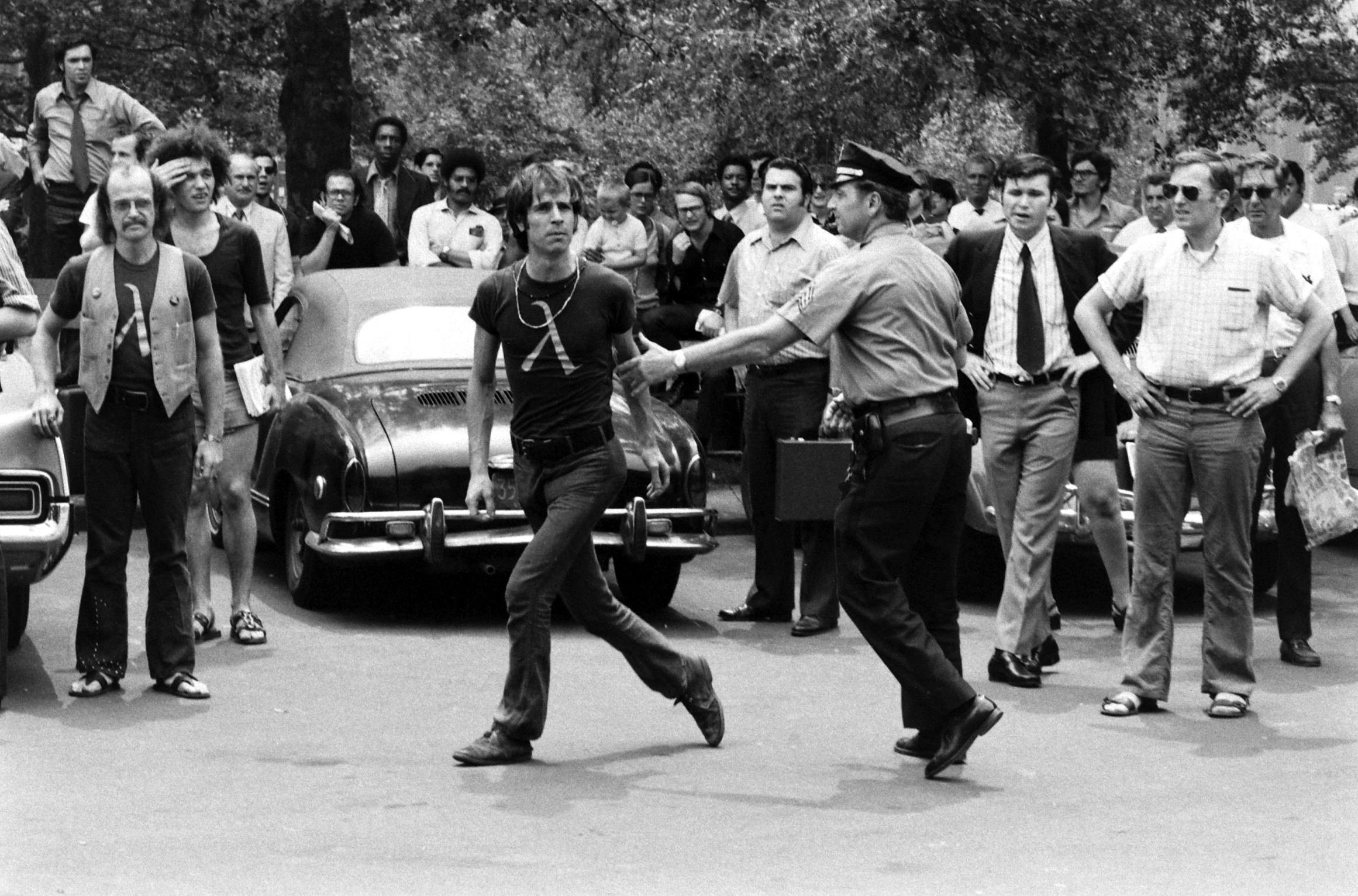

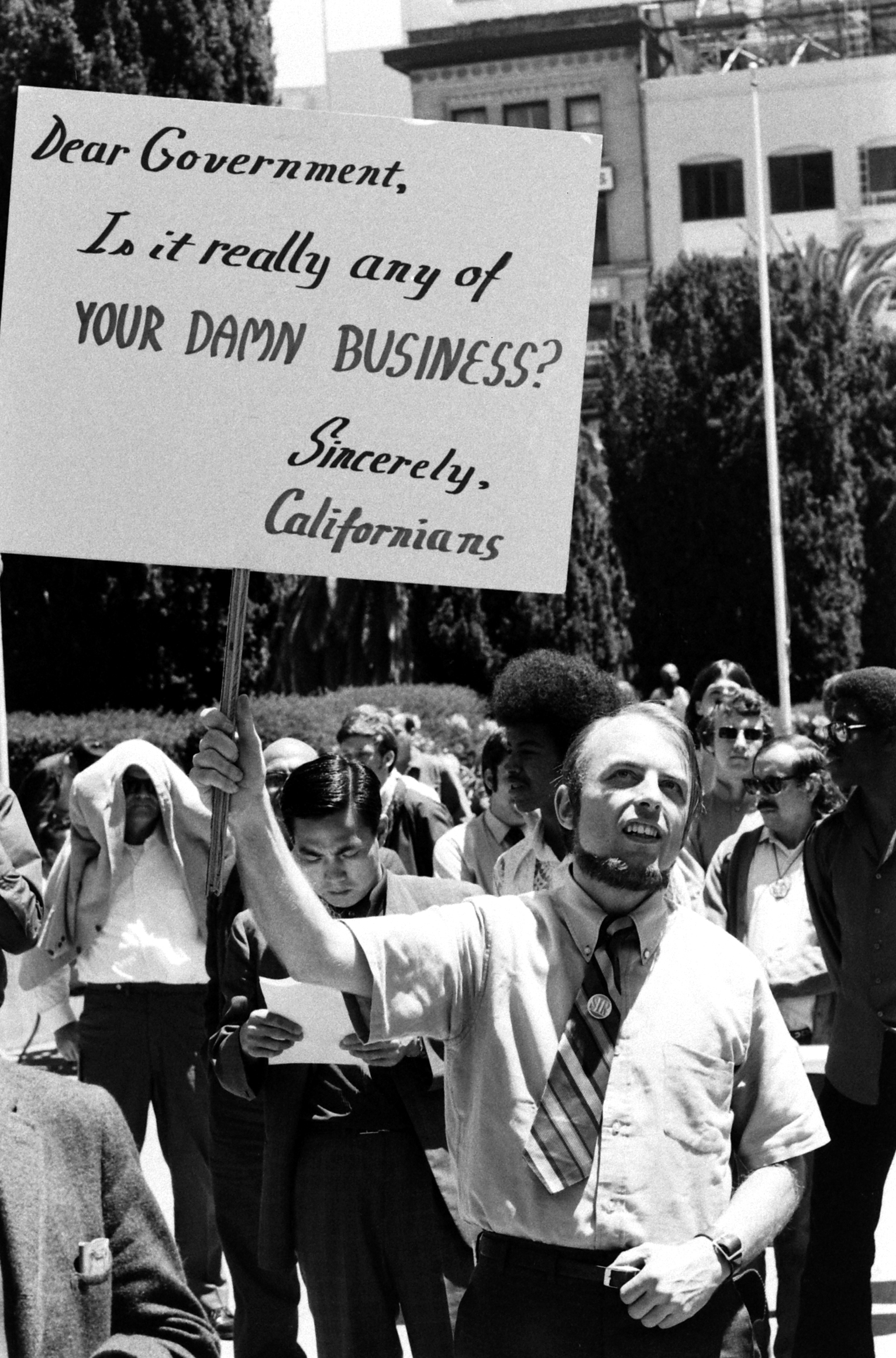
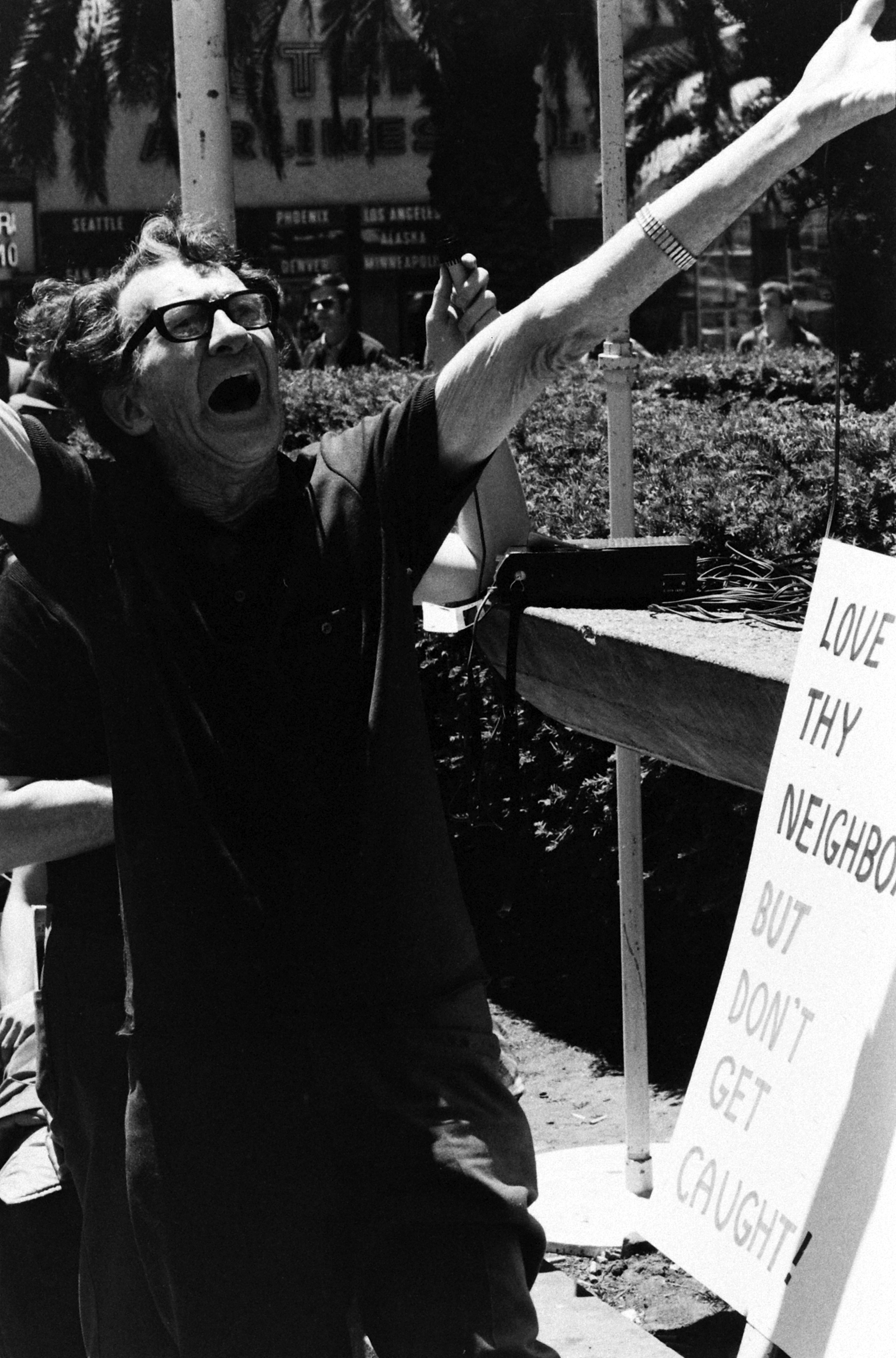
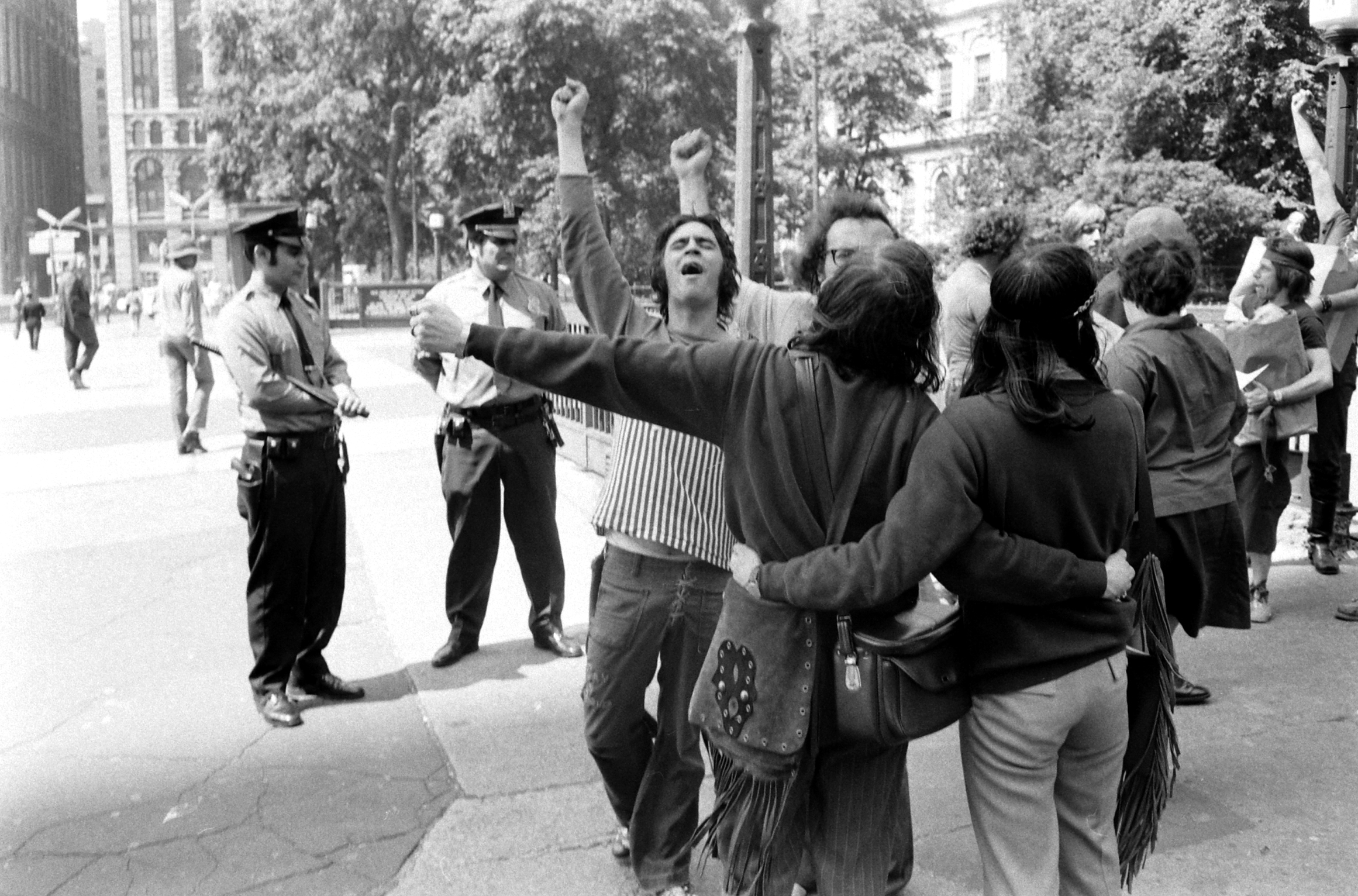
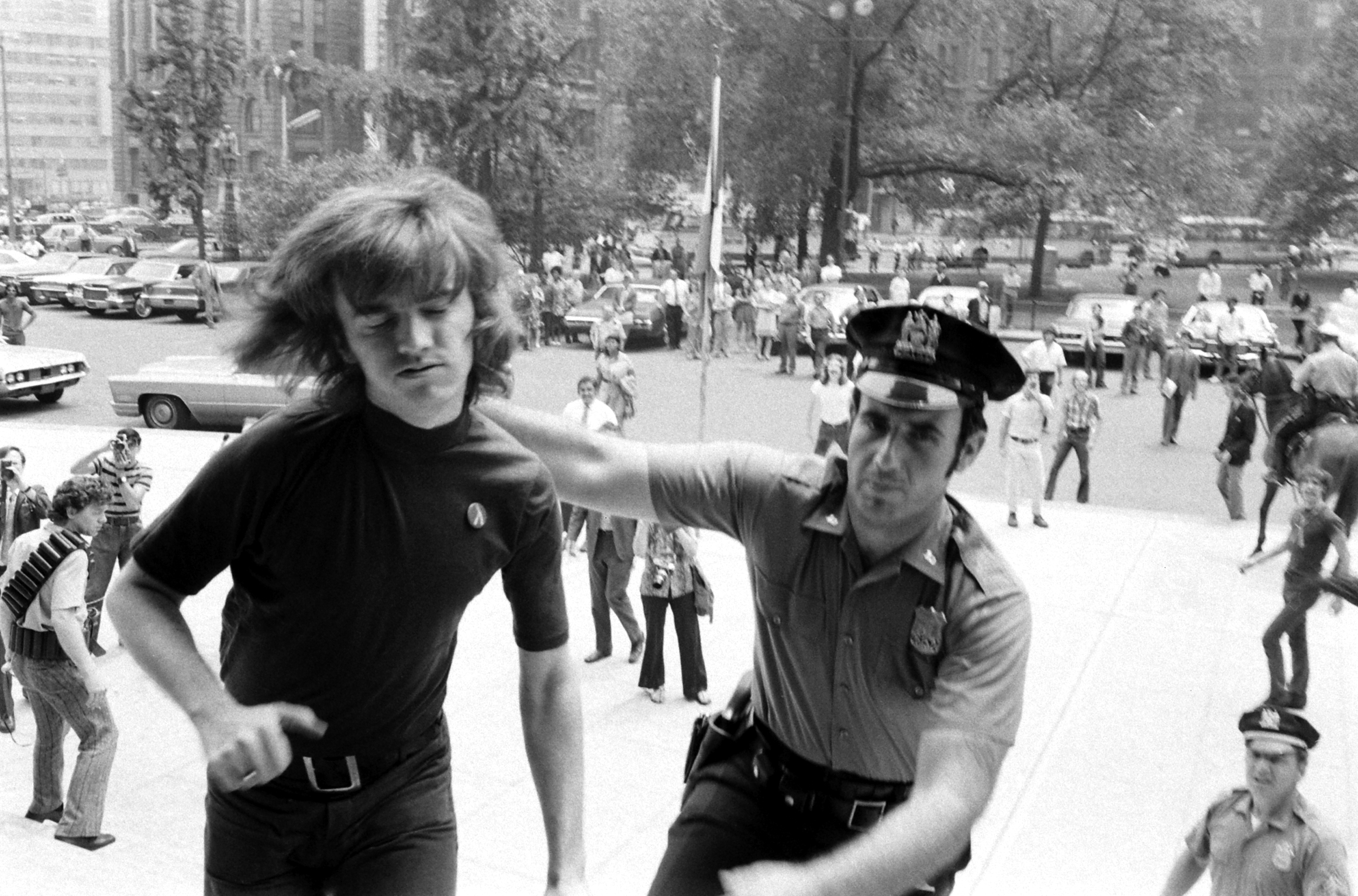
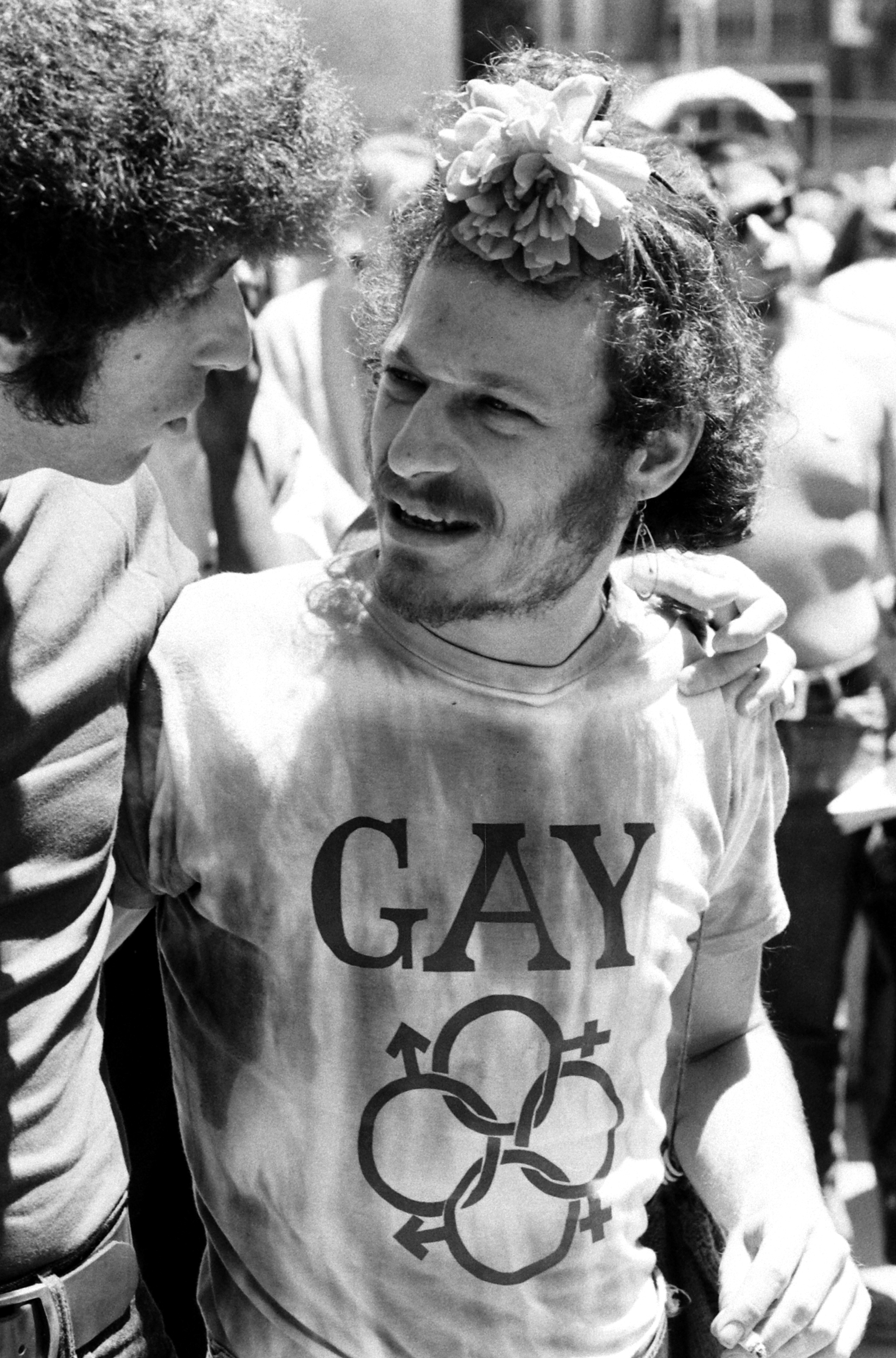
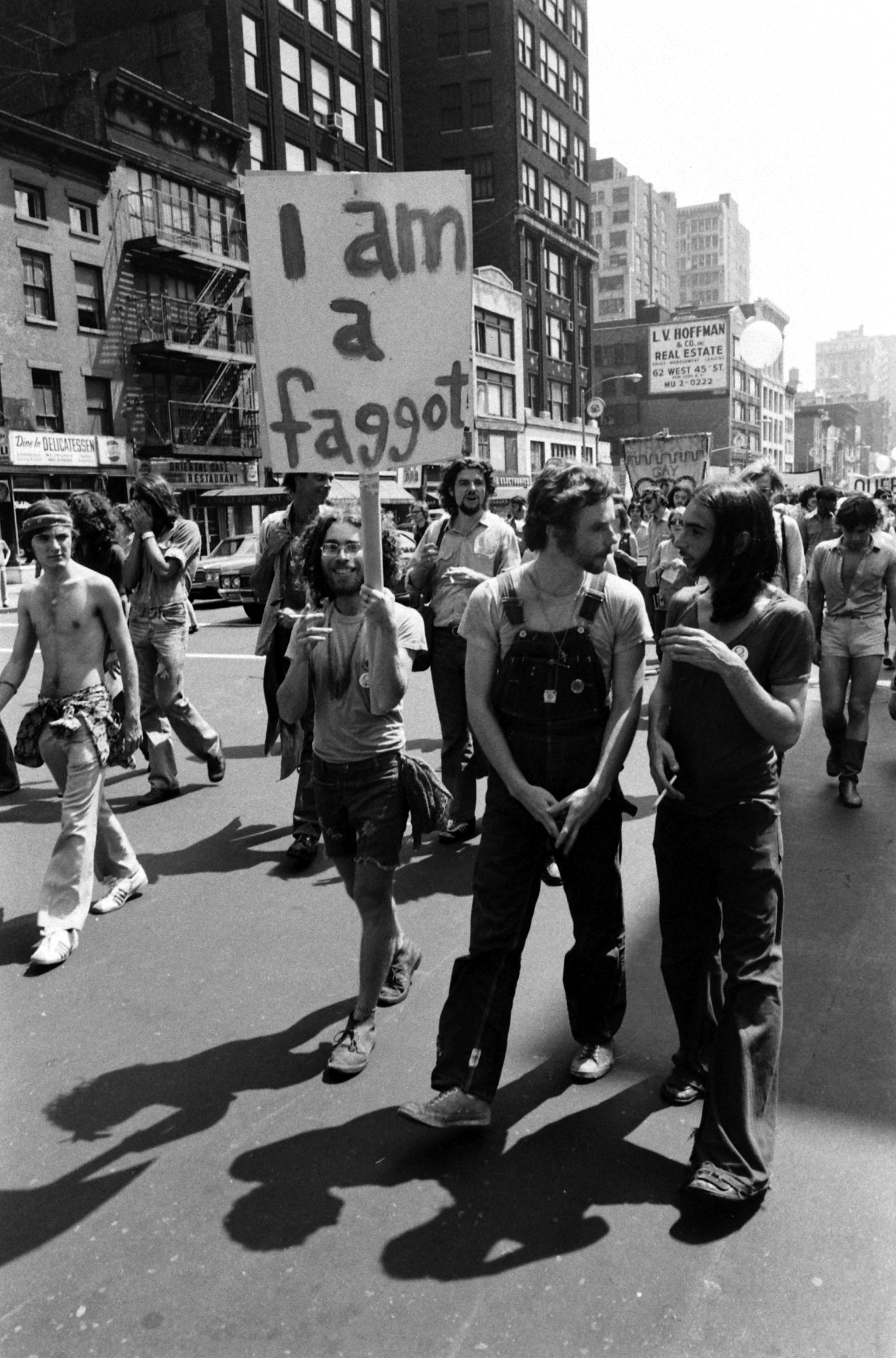
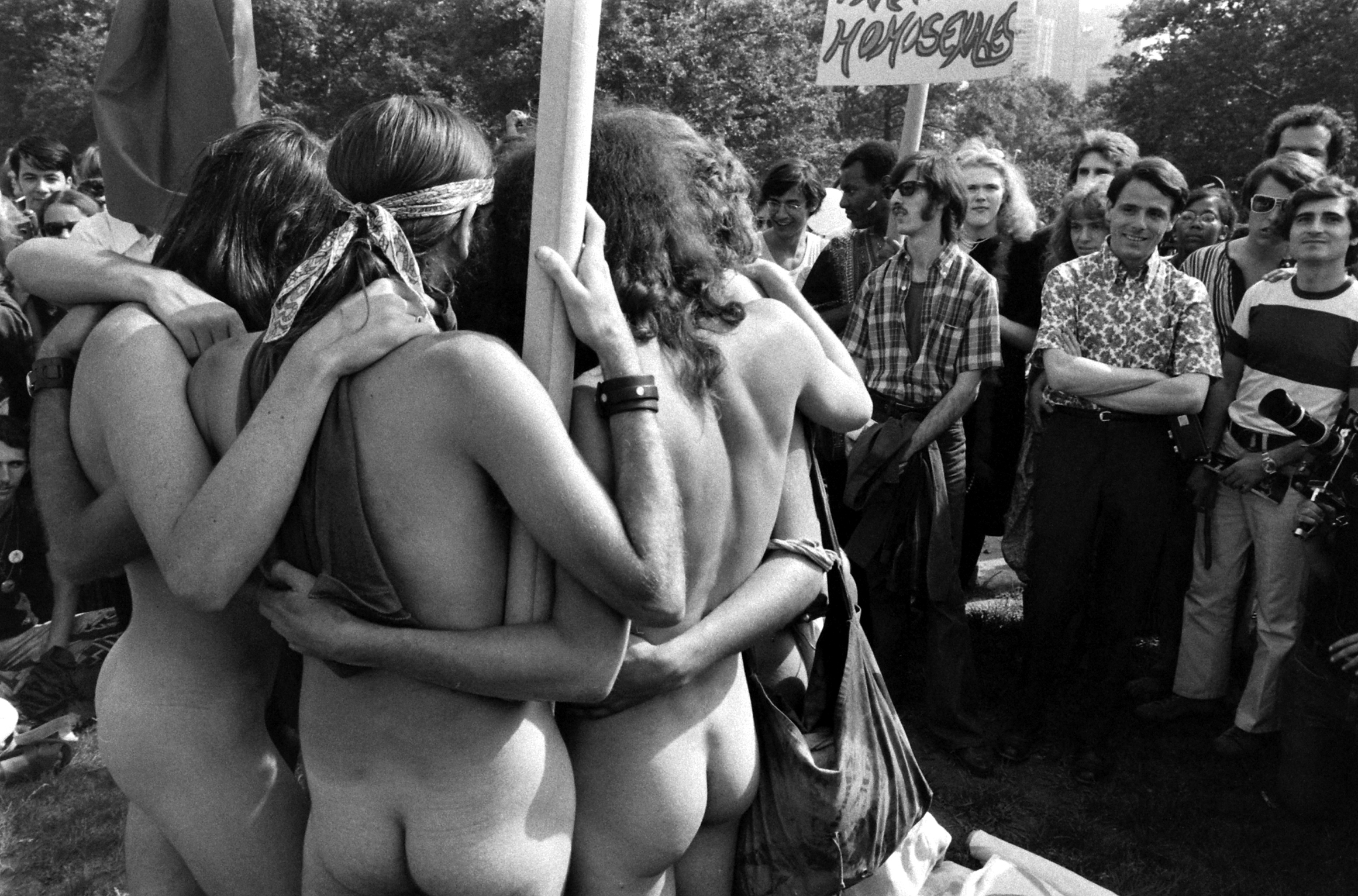
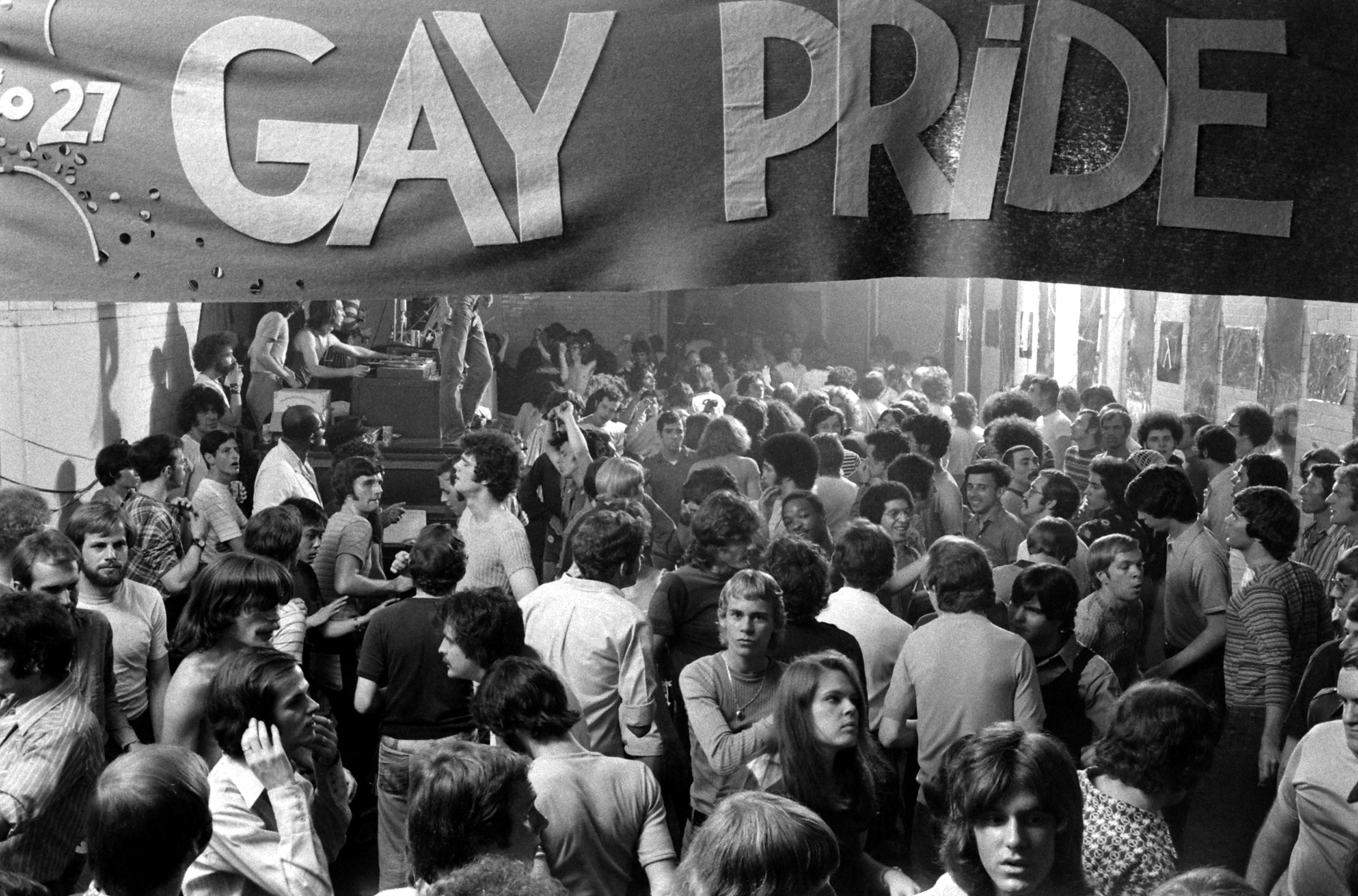

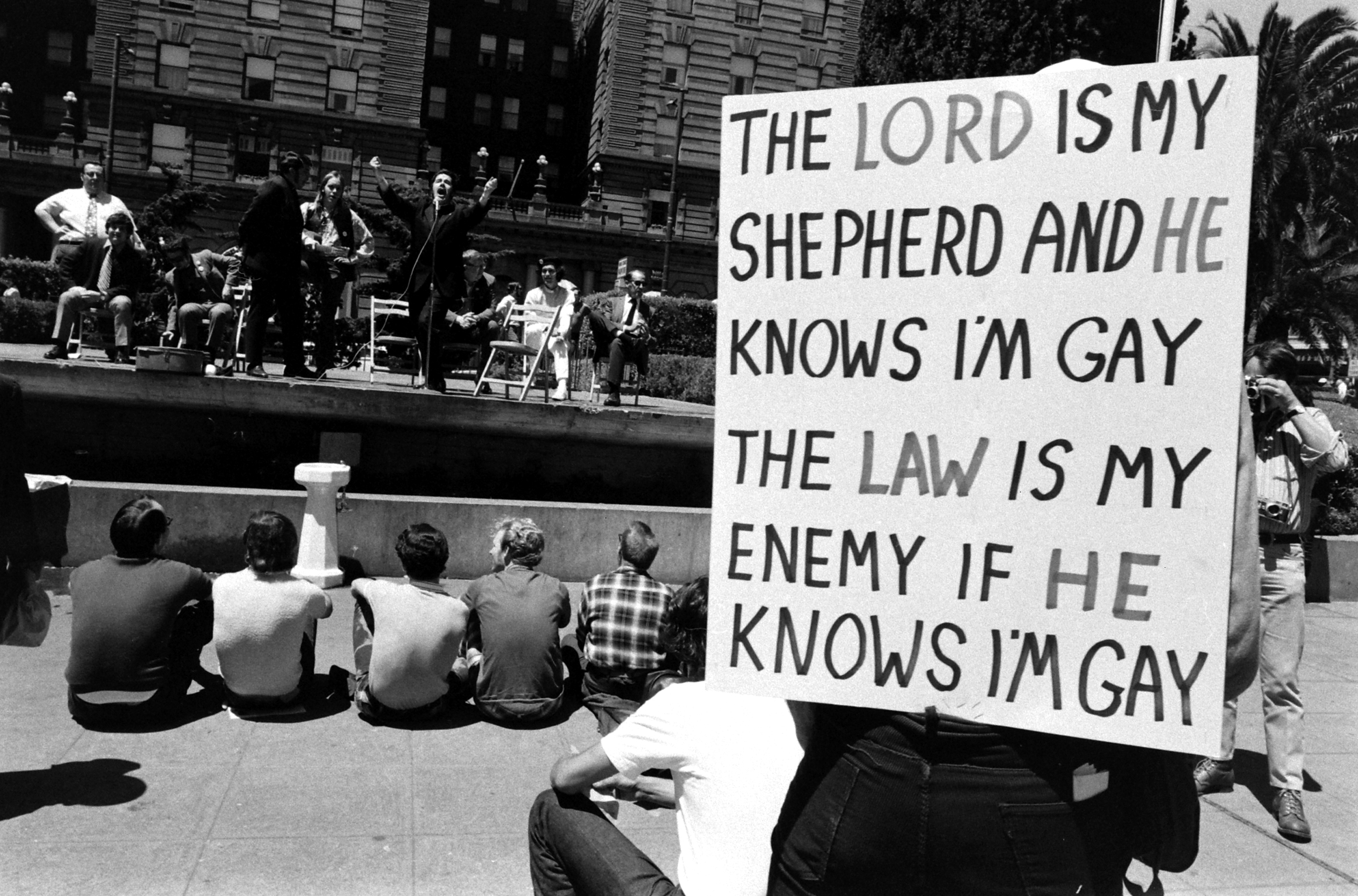
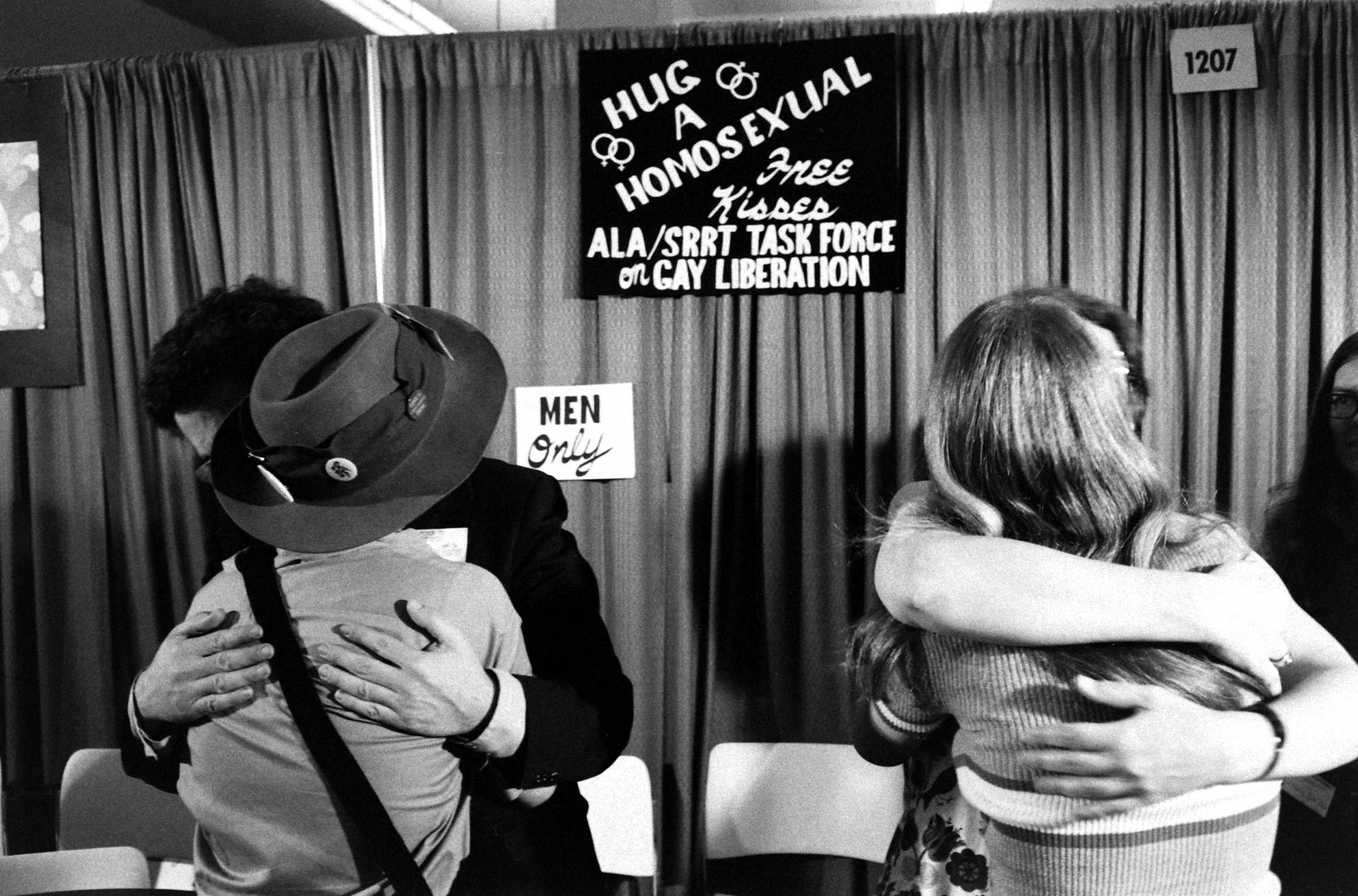
More Must-Reads from TIME
- Caitlin Clark Is TIME's 2024 Athlete of the Year
- Where Trump 2.0 Will Differ From 1.0
- Is Intermittent Fasting Good or Bad for You?
- The 100 Must-Read Books of 2024
- Column: If Optimism Feels Ridiculous Now, Try Hope
- The Future of Climate Action Is Trade Policy
- FX’s Say Nothing Is the Must-Watch Political Thriller of 2024
- Merle Bombardieri Is Helping People Make the Baby Decision
Contact us at letters@time.com